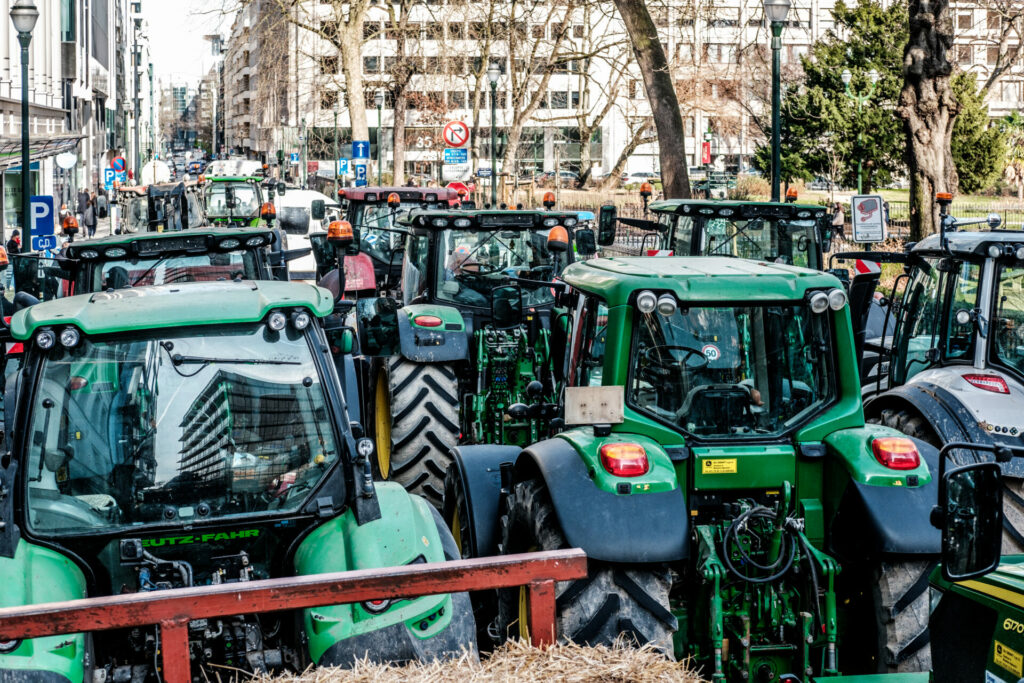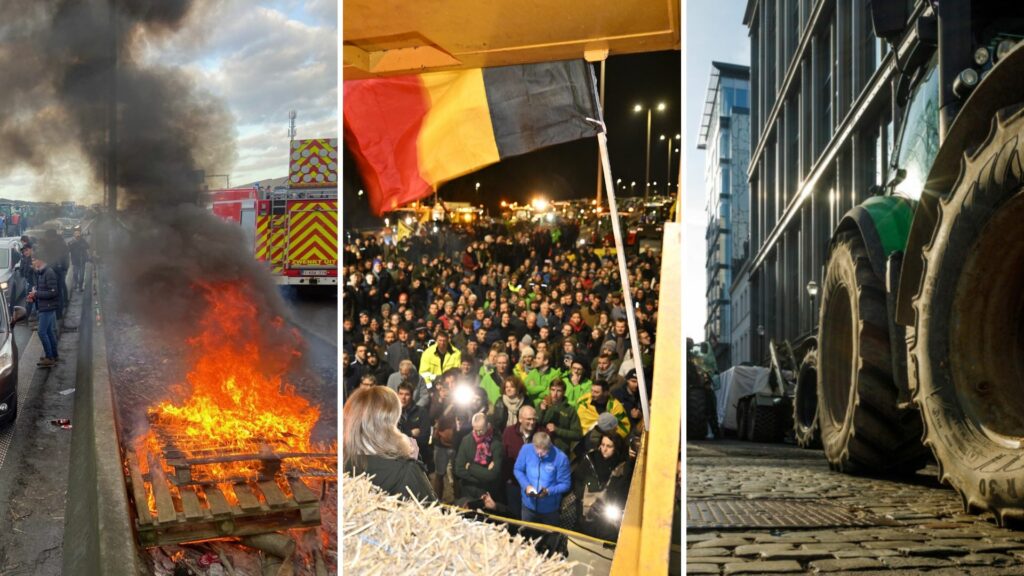Despite government assurances and emergency EU talks in response to the farmers' protests across the bloc, discontent in the sector is not dissipating, with demonstrations in Belgium now focussing on Brussels. What started as a series of regional actions now aims at "eurocrats" as the primary target.
It isn't the first time that tractors have rolled on Brussels, but the grievances this time are different; no longer kicked off by Flemish farmers irate at limits to nitrogen emissions, the movement that started in Belgium's francophone region emphasised the struggle to make their occupation financially viable.
Yesterday's Brief highlighted some of the challenges faced in Wallonia, but with protests taking place in several Member States it is difficult to disentangle regional particularities from fundamental EU problems. No doubt there is overlap and shared concern, but pinpointing the policy at fault is much more tricky.
Those manning the roadblocks can strongly state the symptoms of a system that's not delivering, but the cause is less clear. Which begs the question as to the remedy.
Many protestors have fixed their sites on EU initiatives, with one prime scapegoat being the Green Deal – a flagship initiative to make the Union climate-neutral by 2050. The plan will doubtless have major implications for agriculture, except that the laws that would impact farming have yet to come into effect. Take the Nature Restoration Law, which was finally passed into legislation but not before opposing parties in the Parliament had fought tooth and nail to dilute the conditions. Other aspects of the Green Deal have so far been too contentious to approach.
Closer to the mark is the EU-Mercosur agreement: a huge free trade deal with Latin America that would open the door to massive imports of products that would likely not be permitted for production in Europe. Right now this deal hangs in the balance, with heads of state discussing it this week.
But even more than these prospective challenges is the reality that farming has become a race to the bottom, with wholesale prices imposed on farmers that push towards large-scale operations in order to make the effort pay. As mentioned yesterday, the number of small farmers across the continent has collapsed, with the task of feeding Europe left only to big players.
Where's your food from? Let @Orlando_tbt know.
Belgium in Brief is a free daily roundup of the top stories to get you through your coffee break conversations. To receive it straight to your inbox every day, sign up below:
1. Inflation in Belgium rises to 1.75%: Which products have become more expensive?
Inflation in Belgium increased for the third month in a row after significantly dropping until October last year. The figure is expected to more than double in the coming months. Read more.
2. Farmer protest continues: Major traffic disruptions in Brussels and across Belgium

Major traffic disruptions are expected throughout the Brussels-Capital Region all day on Wednesday and Thursday, as a large farmers' demonstration will take place at the same time as a European summit in the city's Schuman district. Read more.
In the meantime, the farmers have won a concession as the European Commission postponed the introduction of stricter rules. Read more about that here.
3. Asylum seekers' lawyers seize €400,000 from Belgian State
Following the seizure and auctioning of government furniture, one law firm has taken its fight against Belgium's failure to shelter asylum seekers a step further by seizing large amounts of money from the State's bank account. Read more.
4. Non-electric company cars spared from higher tax but bicycle benefits increased
Belgium's Federal Government has reached a final agreement on tax for fossil-fuelled company cars, which now will not be increased. However, the annual allowance for bicycles used for commuting will increase. Read more.
5. One in four MEPs has been involved in a scandal
From workplace harassment to fraud, nepotism and corruption – 163 of the 704 current Members of the European Parliament (MEPs) have been implicated in various scandals. Read more.
6. 'No one is immune': High-level European politicians polluted by PFAS
Blood tests carried out among several key European politicians and MPs have highlighted the extent to which the continent's population is exposed to PFAS, often referred to as 'forever chemicals'. Read more.
7. Hidden Belgium: Ostend street art
Ostend is dotted with street art that appeared in 2016 during the Crystal Ship festival. You can find enormous works on the side walls of apartment buildings, but also tiny works hidden in unexpected spots. Read more.

